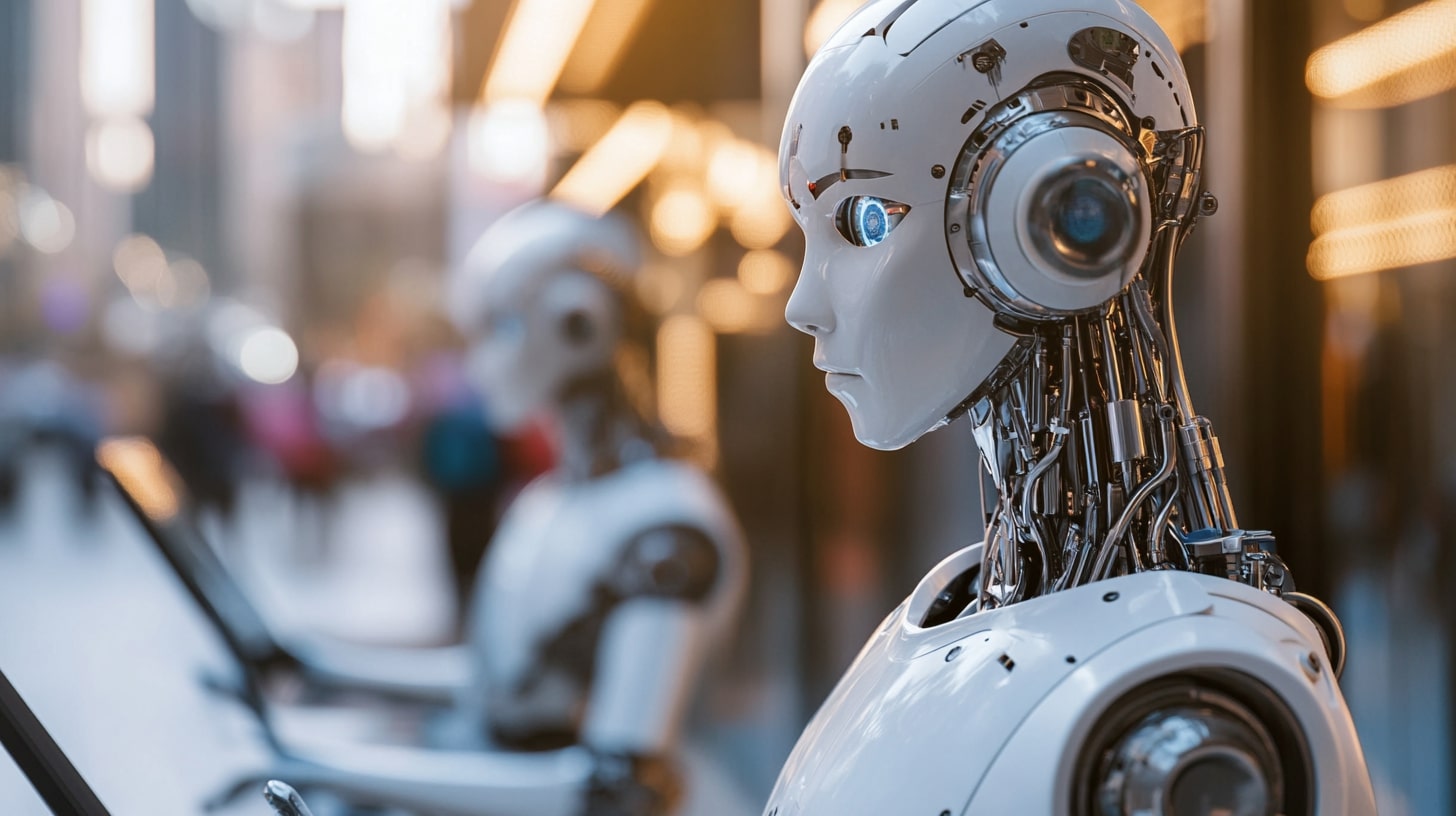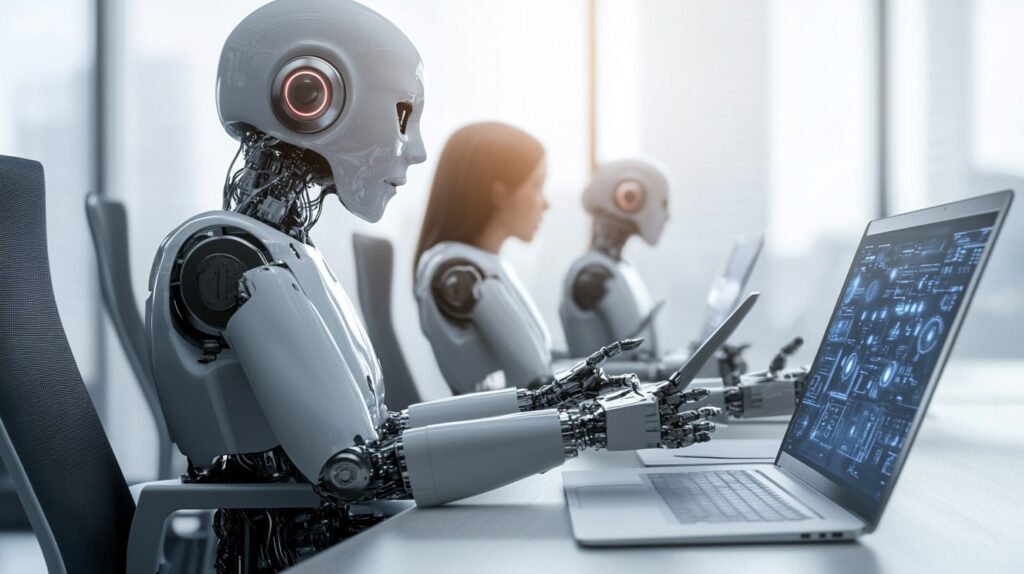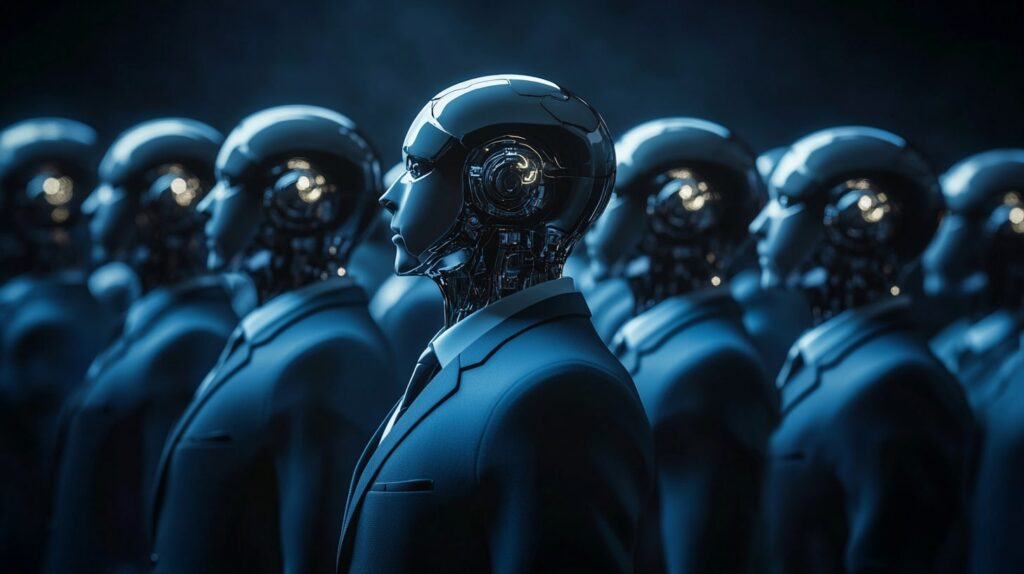The Role of Knowledge Workers: Defining Tasks and Impact

Any field is characterized by the use of innovative technologies for productivity. Since ancient times, workers have applied their skills and knowledge in any sphere. Workers have applied their expertise extensively in economic, digital, and service-oriented sectors. Workers were recognized as knowledge workers due to the influential theorist Peter Drucker. The theorist used this meaning for people who solve complex problems. His primary focus was on decision-making and work optimization.
Today, this term is used in the digital environment of many spheres. Thanks to these workers, qualifications are improved, and work is optimized. They open up new innovations and a world of transformational changes. Workers have a significant influence on the development of the economy in modern realities. Their application takes the company to a new level in the competitive market. Knowledge workers are an excellent tool for improving and streamlining work.
Understanding Who Knowledge Workers Are in the Modern Workplace
Since the 20th century, this concept has become established in modern workplace environments. They play an essential role in business economics and process optimization. Using intellectual abilities helps to achieve a high level. Employees are the leading resource due to the correct decision-making process. Employees utilize strategic thinking to achieve optimal results. Companies that use employees have increased competitiveness. Here is the primary knowledge workers definition in modern realities:
- Autonomy. One of the most significant advantages is the ability to make decisions independently. Employees independently understand how and what needs to be done in the workplace. Employees prove themselves to be valuable assets in the decision-making process.
- Problem solving. Creating new opportunities for the company plays an important role. Employees make data-driven decisions to address situations. Analyzing the situation and making these decisions optimizes the work process.
- Using information as a fixed asset. For employees, intellectual decision-making plays a key role. They do not use physical strength, they use strategic decisions. They effectively collect, process and research information. Based on this data, they apply the right choices using knowledge.
Knowledge workers have an interesting definition that is used in different professions. Workers analyze and make decisions based on data. Often, workers include software developers. Knowledge workers can be found in roles such as marketing and business data analysis. Scientists, researchers, and consultants also use intellectual thinking.
In the era of modern technology, workers play a key role. When using artificial intelligence, data is processed at the machine level. Workers, in turn, interpret the data and formulate different strategies. They can monitor and manage these changes to improve the process.
Cognitive Demands and Skill Sets of Knowledge Workers
Modern technologies require clear data-based decisions. For perfect work, companies use artificial intelligence and employees. Through effective integration, companies strengthen their brand while optimizing workflows. The question "what is a knowledge worker?" and what his role is is interesting. A knowledge worker applies intellectual capabilities to guide the decision-making process. In addition to technical knowledge, mental and physical powers are used. Here are the main cognitive requirements and skills of employees:
- Critical thinking. Due to critical thinking, employees can analyze and make decisions. They see the situation and can offer their alternatives. This process helps companies make more informed decisions.
- Continuous learning. One of the most significant advantages is continuous learning for professional development. Continuous transformational development involves changing the trend for specific products. Employees must receive comprehensive initial training and engage in continuous learning.
- Digital literacy. Employee knowledge extends to understanding digital technologies. A good employee must be computer literate and adhere to company rules. He constantly works with volumes of data, machine learning, and analytical platforms. The employee also works with software to improve decision-making.
A successful employee today is considered a good specialist with a combination of capabilities. Interdisciplinarity and adaptability are key to building new business strategies. A vivid example is a marketer who must understand analytics and how to work with technology. An interdisciplinary approach involves making effective decisions through awareness and practice.
Tools and Technologies Empowering Knowledge Workers
It is important to understand "who are knowledge workers?" and how they will prove themselves to the company. Workers are focused on an intuitive mental and intellectual approach. They show their effectiveness together with technological processes and tools. Tools and technologies are a great addition to the work of workers. The modern world of transformation enhances the effectiveness of hybrid work approaches. Tools are the best way to analyze, process, and make decisions. Here are the main technologies:
- Platforms for collaboration. Special platforms are an indispensable part of constant communication. Thanks to platforms, knowledge is shared, and collaboration between teams occurs. Platforms are an excellent environment for the work process in real time. A vivid example is Microsoft Teams due to the possibility of working in real time.
- Assistants with artificial intelligence. Knowledge workers are defined by their application of knowledge and intelligence in their work. For workers, assistants with artificial intelligence play a key role. Automation is an integral part of improved decision-making. Assistants help process large amounts of data in seconds. They plan tasks and predict any risks. In turn, employees examine these points and adjust if necessary.
- Knowledge management systems. Management systems help provide quick access. Usually, employees provide access to the necessary information. Knowledge management systems are an integral part of the continuity of work processes. Systems allow for more space for ideas related to intuition. Employees can use data to create what is necessary for the company.
Key Tasks Performed by Knowledge Workers Across Sectors

Knowledge workers possess skills that are essential across many fields. Employees perform complex and intellectual tasks based on data. They use analytics, brains, and creativity. Their work is integrated to streamline overall workflows. They perform specific functions that are necessary for the company. Here is a list of these tasks:
- Analysis. Employees collect and analyze data for further decisions. Based on this data, they make informed decisions that are useful for the company.
- Innovation. Employees develop new products that are useful for the company. They use their minds and the latest innovations for further collaboration.
- Communications. Communication between employees plays a key role. Employees transfer knowledge, coordinate reports, and present materials and presentations.
- Strategy development. Employees plan based on specific data and company goals. They use new trends and analyze past events.
There are specific differences and standard features in different industries. Every field and sector uses knowledge workers to improve work optimization. However, there are differences that are important to consider for further development of strategies. Here are the main areas where workers are used:
- Healthcare. In healthcare, workers are called doctors and researchers. They use patient data and make decisions based on this. Creating treatments and analyzing results are part of their work.
- Financial sector. In the financial industry, workers are called analysts and managers. They pay attention to risks during work and analyze the market. Workers use algorithms and take into account changes in the digital sphere.
- IT sector. Knowledge worker examples include the application of work in the IT sector. Workers are engaged in tasks related to software. They coordinate products and cybersecurity. The most crucial things in this field are knowledge of technology, continuous development, and training.
Decision-Making and Problem-Solving Responsibilities
Employees have extensive experience and a wide range of knowledge for the process of making the right decisions. Employees solve complex problems and achieve optimal success for the company. Instead of working according to instructions, employees rely on intelligence and reason. They add analytics and creativity to achieve success. Here is how employees identify and solve problems:
- Problem identification. Knowledge workers are defined as specialists who identify a problem. They investigate shortcomings and various anomalies and make decisions on this. Employees analyze data and contexts to understand the situation.
- Assumptions. Employees can assume and form hypotheses about the problem. They carefully evaluate multiple possibilities to determine the best approach for the company.
- Finding a solution. Employees apply intellectual and mental power to thinking. They connect creativity and compare it with other research to find a solution. The combination of reason, intelligence, and analytics helps to make the optimal decision.
- Test and implement. After a decision is made, testing is conducted to identify deficiencies. The chosen solution is implemented based on the results and data.
Workers use analytics to understand the problem. They work with a large amount of different data and research the needs of the company. One of the most significant advantages of knowledge workers using AI is improved predictive capability. Workers increase their accuracy through testing various solution hypotheses.
Creating and Managing Intellectual Capital
Intellectual capital management is used to optimize work. Intellectual capital is characterized as the company's accumulated experience and knowledge. Employees reproduce this process to achieve success and develop new innovations. Here is what is included in the creation of new intellectual capital:
- Generation of new ideas. Employees analyze the external and internal world of the business. They focus on generating innovative ideas for specific products and technologies. Based on the analysis, employees make the right decisions for the company.
- Generation of processes. Generation of processes consists of creating new models and algorithms. Employees can further scale and use the development of processes in the future.
- Development of structures. Knowledge in the workplace plays a significant role in developing new structures. New technologies and a comprehensive approach are the best. The right environment for the company and its development is formed.
An integral part of every company, especially in the economic sector, is management. Intellectual capital management consists of documentation. Employees are engaged in creating reports, documents, and specific materials. Integrating analytics helps organizations overcome internal challenges and achieve success. Creating new processes depends on innovative channels.
Impact of Knowledge Workers on Organizational Growth and Innovation

Knowledge in the workplace is the key to optimizing work and achieving good results. Constant changes and technological developments help companies automate work. Based on data, employees are one step closer to achieving success. They can adapt and make decisions thanks to their intelligence. Employees contribute to the growth of the company due to:
- Flexibility and adaptability. Employees analyze data and respond quickly to any changes. They can use special tools and models to solve problems. Employees help optimize company operations across various challenges.
- Innovation. Employees allow different ideas and hypotheses for decision-making. They facilitate knowledge sharing throughout the organization to strengthen the brand.
- Strategic thoughts. Knowledge workers leverage AI and strategic thinking to achieve success. The employee handles multiple responsibilities: completing tasks, analyzing market trends, and developing strategic vision.
Examples will help to understand the advantages of employees. A vivid example is IBM, which is driven by a new technological breakthrough. The company uses employees as a way to achieve success. Another example is the IT field, where employees are an indispensable tool. They can create new software products to improve technology.
Challenges and the Evolving Future of Knowledge Work
The future of the workforce promises to be even better. Employees are constantly faced with various problems and challenges, but they are being solved. Future trends are compelling companies to make strategic decisions regarding their workforce. Here are the main issues that raise questions:
- Cognitive overload. Employee knowledge can experience exhaustion due to the constant flow of information. Information overload and multitasking lead to concentration problems.
- Burnout. Another problem can be burnout due to high demands. Employees face emotional exhaustion due to the lack of boundaries between work and personal life.
- Measuring productivity. Ordinary numbers cannot measure the value of a real employee. A significant challenge is measuring creative output and analytical contributions.
The future workplace promises greater productivity and improved conditions. Using a collaborative work model will lead the company to success. Remote work and on-site work are great ways to be productive. Knowledge workers will have time to relax and work well. Continuous learning will help improve mental abilities and achieve success.One of the advantages is the collaboration of artificial intelligence and the understanding of chatbots. The process integrates routine tasks, oversight, and performance analysis. Organizations will create special environments with psychological support. They take full responsibility for investing in employee development. Protecting employees from burnout is an integral part of organizational success.


